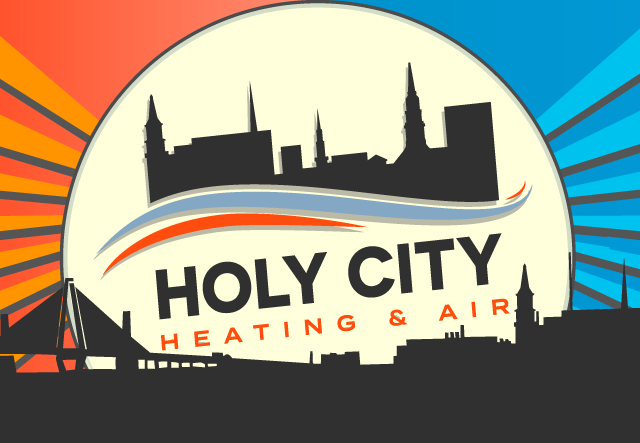A reliable heating system is crucial for maintaining a comfortable home, especially during cooler months. However, even the best-maintained systems can experience issues that require attention. Recognizing common heating problems early can help you address them quickly, ensuring your home remains warm and efficient.
Identifying Common Heating Problems
Recognizing common heating issues early can help you take swift action and prevent bigger problems. Here are some of the most frequent heating problems homeowners encounter:
- Uneven Heating: If some rooms in your home are warmer than others, it might be due to blocked vents, ductwork issues, or an improperly sized heating system.
- No Heat: When your heating system isn’t producing any heat, it could be due to a faulty thermostat, pilot light issues, or a tripped circuit breaker.
- Strange Noises: Unusual sounds like banging, clanking, or squealing coming from your furnace often indicate mechanical problems, such as loose components or worn-out belts.
- Short Cycling: If your furnace frequently turns on and off, it could be due to an overheating issue or a malfunctioning thermostat. This short cycling can cause wear and tear on your system.
- High Energy Bills: A sudden increase in your energy bills may indicate that your heating system is running inefficiently and needs maintenance or repair.
- Poor Air Quality: A heating system that blows dust or has a musty odor may suggest dirty filters, ducts, or even mold growth within the system.
DIY Tips for Basic Heating Repairs
Some heating issues can be fixed with a few simple steps, saving you time and the cost of a professional repair. Here are some basic heating repair tips you can try:
- Check and Replace Air Filters: Dirty air filters can restrict airflow, making your heating system work harder than necessary. Replace the air filters every one to three months to maintain optimal airflow and efficiency.
- Inspect the Thermostat: Ensure your thermostat is set to the appropriate temperature. If it’s not functioning correctly, try replacing the batteries or recalibrating it according to the manufacturer’s instructions.
- Clear Vent Blockages: Make sure that all vents and registers are clear of obstructions like furniture or curtains. Blocked vents can cause uneven heating and put a strain on your system.
- Reset Circuit Breakers: If your heating system isn’t working, check your home’s circuit breaker panel. A tripped breaker can be easily reset to restore power to your furnace.
- Clean Flame Sensor: A dirty flame sensor can cause the furnace to shut down. Carefully clean it with a fine sandpaper to remove any build-up.
- Relight the Pilot Light: If your furnace has a pilot light and it’s gone out, follow the manufacturer’s instructions to safely relight it. Make sure you follow all safety precautions.
When to Call a Professional Technician
Some heating problems are too complex or dangerous to handle on your own. Knowing when to call our professionals can save you time and prevent further damage to your system. Here are cases when you should seek professional help:
- Gas Smell: If you smell gas near your furnace, it could indicate a gas leak. Turn off the gas supply immediately, evacuate your home, and call emergency services. Once it’s safe, contact our professionals to inspect and repair the issue.
- System Doesn’t Turn On: If your furnace fails to start even after checking the thermostat and circuit breakers, it could be a sign of a malfunctioning component like the ignition switch or control board. Our technicians have the skills to diagnose and fix these issues accurately.
- Persistent Noises: Continuous banging, rattling, or screeching noises indicate serious mechanical problems. These issues may involve failing motors, loose parts, or problems with the blower assembly, all of which require a professional touch.
- Inadequate Heating: If your system is running but not providing enough heat, there may be issues with the burners, heat exchanger, or ductwork. Our professionals can perform thorough inspections to identify and resolve these problems.
- Repeated Cycling: Furnaces that frequently turn on and off may have issues with the heat exchanger, fan motor, or thermostat. This behavior reduces efficiency and can escalate wear and tear, necessitating a professional inspection.
Preventative Measures to Avoid Future Heating Issues
Taking preventative measures helps keep your heating system in good condition, reducing the need for repairs and extending its life. Here are some simple steps to maintain your system:
- Regular Filter Replacement: Change the air filters every one to three months. Clean filters improve airflow and efficiency, ensuring your system doesn’t overwork itself.
- Annual Maintenance: Schedule an annual inspection with our professionals. Regular maintenance can spot minor issues before they become major problems, keeping your system running smoothly.
- Keep Vents Clear: Ensure all vents and registers are free from obstructions like furniture or drapes. Clear vents allow for even heating distribution and reduce stress on your system.
- Seal Leaks: Check for and seal any leaks in your ductwork. Leaky ducts can cause your system to work harder, increasing energy consumption and wear.
- Install a Programmable Thermostat: A programmable thermostat helps maintain consistent temperatures and reduces strain on your heating system. Set it to lower the temperature when you’re not home and raise it before you return.
- Clean Around the Unit: Keep the area around your furnace clean and free of debris. A clean environment prevents dust and dirt from entering the system and causing blockages or dama
Conclusion
Regular care and prompt heating repairs are essential for maintaining a reliable and efficient heating system. Recognizing common issues, knowing when to perform DIY repairs, and understanding when to call our professionals can make a significant difference in your home’s comfort and safety.
If you’re experiencing persistent issues or need professional advice, don’t hesitate to reach out. Contact Holy City Heating & Air, LLC today for expert heating repair in Charleston. Our team is ready to help you maintain a warm and cozy home. Call us now to schedule your service!






